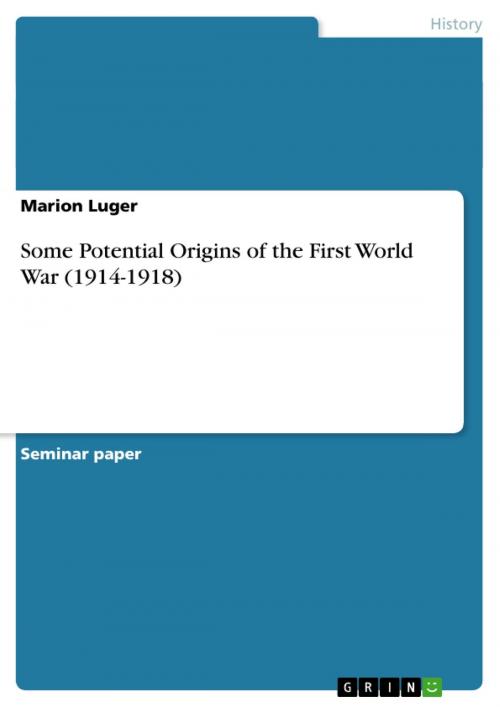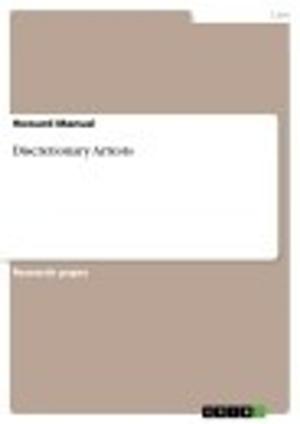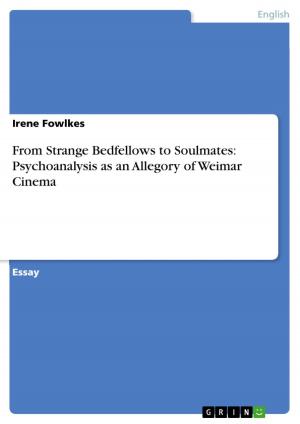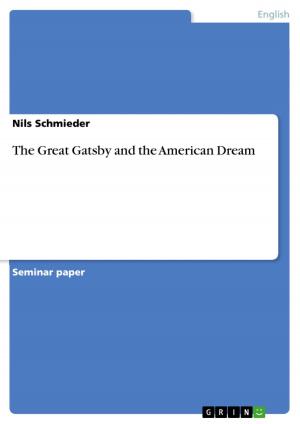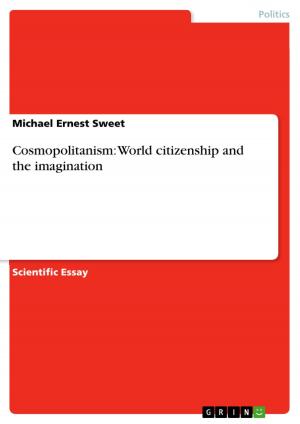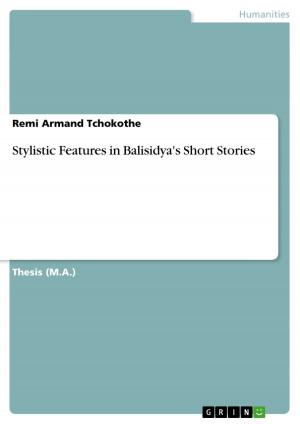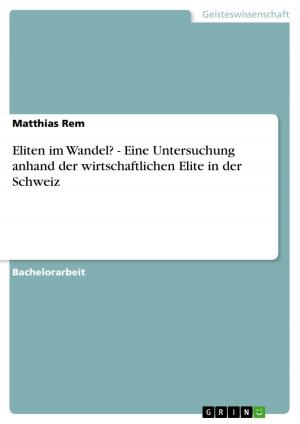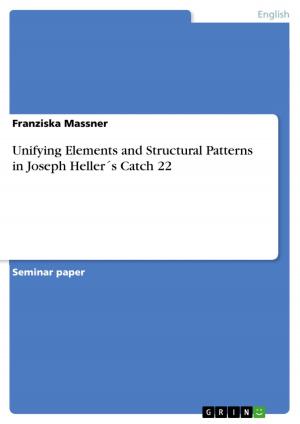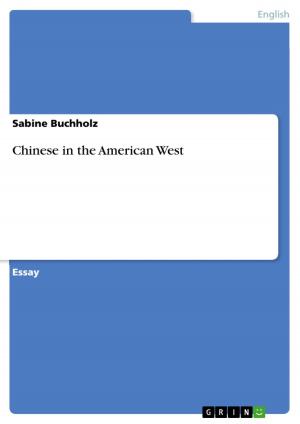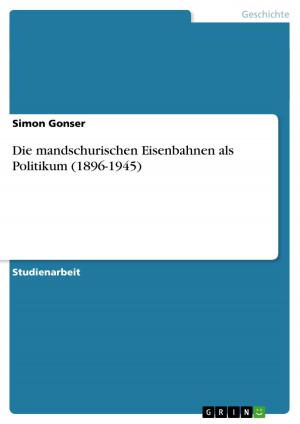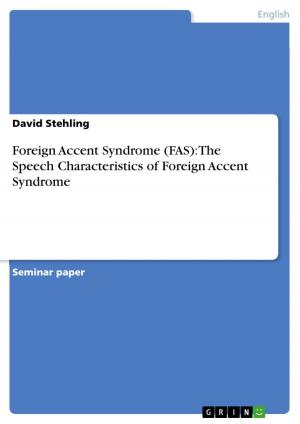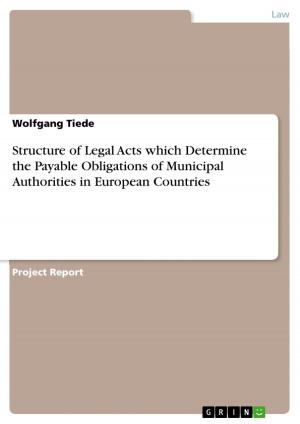| Author: | Marion Luger | ISBN: | 9783640429462 |
| Publisher: | GRIN Publishing | Publication: | September 17, 2009 |
| Imprint: | GRIN Publishing | Language: | English |
| Author: | Marion Luger |
| ISBN: | 9783640429462 |
| Publisher: | GRIN Publishing |
| Publication: | September 17, 2009 |
| Imprint: | GRIN Publishing |
| Language: | English |
Seminar paper from the year 2000 in the subject History Europe - Germany - World War I, Weimar Republic, grade: 1,0, University of Sussex, language: English, abstract: Throughout World War I, almost 15 million people lost their lives; as one of its consequences, the Austrian-Hungarian, Russian and Turkish Empires fell apart, and 'the old internal and international order was for ever destroyed.' Owing to the fact that the First World War marked the beginning of an entire new era, the investigation of its origins still remains a controversial historical issue. While some historians put the emphasis on the primacy of domestic policies and assert that internal pressures conditioned the decisions of the belligerent states, others maintain the concept of the 19th century German historical scientist Ranke, who stressed the importance of foreign affairs on the authorities' motivations leading to the 'Great War'. In this essay, however, I will firstly concentrate on the formal justifications of war declarations (section II). Thereupon, section III scrutinizes these official statements by considering the broader imperial and military framework. Furthermore, section IV attempts to reveal the origins of a system of alliances and rivalries among European nations, whereas section V surveys the impacts of these tensions on the thought process on the eve of World War I.
Seminar paper from the year 2000 in the subject History Europe - Germany - World War I, Weimar Republic, grade: 1,0, University of Sussex, language: English, abstract: Throughout World War I, almost 15 million people lost their lives; as one of its consequences, the Austrian-Hungarian, Russian and Turkish Empires fell apart, and 'the old internal and international order was for ever destroyed.' Owing to the fact that the First World War marked the beginning of an entire new era, the investigation of its origins still remains a controversial historical issue. While some historians put the emphasis on the primacy of domestic policies and assert that internal pressures conditioned the decisions of the belligerent states, others maintain the concept of the 19th century German historical scientist Ranke, who stressed the importance of foreign affairs on the authorities' motivations leading to the 'Great War'. In this essay, however, I will firstly concentrate on the formal justifications of war declarations (section II). Thereupon, section III scrutinizes these official statements by considering the broader imperial and military framework. Furthermore, section IV attempts to reveal the origins of a system of alliances and rivalries among European nations, whereas section V surveys the impacts of these tensions on the thought process on the eve of World War I.
